General Insurance Blogs, Articles & Updates by - Magma Insurance
Have us call you
- RENEW YOUR POLICY
- BUY NEW POLICY
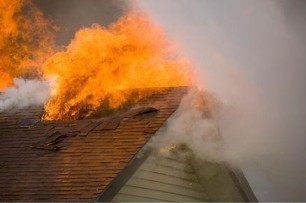
Invest in the fire and special perils policies for advanced protection of your property
Building a property from zero is a daunting process. It takes time, effort, and a high budget to construct your dream home or your dream office. Despite all this hard work, there are times when misfortune strikes unexpectedly. It can be a short circuit caused by lightning, a storm, flood, or cyclone that might drown your premises.
You won’t want your property to fall prey to such casualties. Despite taking all precautions and looking after safety measures, still, you cannot avoid the probability of mishaps. As rightly said, we must always pray for the best but prepare for the worst.
So, it is wise to be smartly insured against any such happenings. A policy that covers most misfortunes, either natural or man-made, is the Fire and Special Perils Policy.
What is the fire and special perils policy?
A fire and special perils policy is a contract where the insurer secures you and your property from any damages that may occur due to natural calamities such as storms, cyclones, and resulting floods, lightning, or man-made perils such as riots, strikes, or malicious damages.
Even though adversities like these may not strike you as something you should pay immediate attention to, it’s best to get insured before the situation gets out of hand. This will give you and your loved ones some much-needed peace of mind.
Key features of this policy:
This policy usually covers several contingencies, including
1. Fire hazard: Your property and possessions are insured if a fire breaks out.
2. Lightning: If any damage is caused by lightning impact
3. Explosion/Implosion: Your property is insured against an unforeseen explosion. If the building collapses inwards due to the failure of a system, that is also insured within this policy.
4. Human hazards like riots, strikes, and malicious damage: In case of these man-made hazards, your possessions are insured against visible physical damage.
5. Natural calamities: No one can accurately predict precisely when a natural disaster will occur. So, it gives great peace when your property is secured against these unforeseen calamities like storms, cyclones, typhoons, tempests, etc. This policy also insures you and your loved ones against floods, and landslides, including repairing your property.
6. Accidental mishaps: The repair charges are covered in the rare chance of accidental damages like the bursting of an automatic sprinkler installation.
7. Missile testing operations
8. Groundworks and other excavations
Some of the add-ons you can opt for in this policy are
1. Debris removal
2. Destruction in the event of a forest fire
3. Loss of rent
Features that are not covered:
Knowing the pros and cons of each policy before purchasing it is essential. There are a few instances where this insurance policy does not cover damage and loss to your property. These are
1. Destruction and damage caused by wars, being invaded by a foreign entity, civil war, rebellions, or in the case of military or usurped power
2. Nuclear war and allied risks
3. Pollution and contamination
4. Damages incurred due to volcanic eruptions or earthquakes
5. Damages incurred due to the loss of unclaimed precious stones or works of art
6. Acts of terrorism or militant activities
It takes a lifetime to build assets like property, so it doesn’t come as a surprise that one would want to get it insured against unforeseen misfortunes. The Fire and special perils policy are one of the most popular insurance policies chosen by homeowners, SME’s and big corporations alike. This holistic plan can protect you and your loved ones and also comes with a lot of flexibility.
You may even invest in the best HOME INSURANCE IN INDIA to protect the content of your home from incidents like theft or damage to the building. Investments that reap fruitful outcomes go a long way in safeguarding your dreams.
Click HERE to know more about the best home insurance in India.
Disclaimer: The information provided above is for illustrative purposes only. To get more details, please refer to policy wordings and prospectus before purchasing a policy.
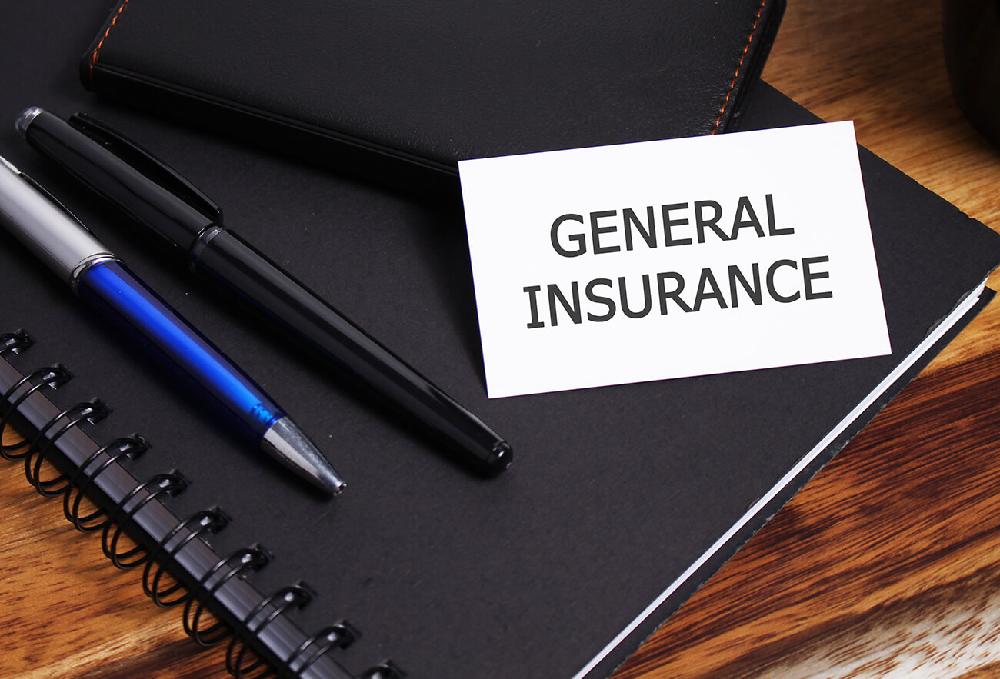
What are the different types of general insurance policies?
In modern times, uncertainty has become a part and parcel of life. You can take as many precautions as possible but certain unwanted situations can always take place. These situations can be related to your health, your life, or your possessions like car, mobile, house etc. Due to any man-made situations or natural disasters, you can suffer losses on various accounts. In such situations, an insurance policy is something that can reimburse you for the losses suffered to a great extent and reduce the monetary damage.
Although insurance policies cannot prevent the happening of any unfortunate incident, they can help minimize losses suffered due to such incidents. Irrespective of the fact whether you decide to Buy Insurance Policy Online or offline, having an active insurance policy is a must.
Insurance policies are available in various types and categories. The two main categories are life policies and non-life policies. The life policies are the ones that deal with ‘life’ of an individual. On the other hand, the non-life policies are the ones which deal with all other types of mishaps that can occur. These non-life policies are also called general insurance policies.
What are the different types of general insurance policies?
Following are the different types of general insurance policies that are available, whether you buy insurance policy online or offline: -
- Health insurance covers all the expenses related to a person’s health when he/she gets hospitalized due to problems like any illness or any accident. It also covers situations like an annual health checkup, daycare procedure, psychiatric support and other health-related situations. Specific extensions of these insurance policies cover critical illness, maternity-related situations and organ donation. The premium of a health insurance policy is based on the individual’s age, history of the health, any genetic disorders and other cases like that.
- Travel insurance losses suffered while travelling to domestic or international locations are covered by the travel insurance policy. Situations like loss of baggage or passport, hijacking, medical expenses and other travel-related situations that require settlement are covered. Any accidental deaths caused during the travel are also compensated by the insurance policy. Some insurance companies also allow the travel insurance policy to be free of any deductibles. In this situation, the company covers all the expenses.
- Motor insurance has further two types of policies that involve comprehensive and third-party policies. The third-party policy involves the settlement in situations that involve any damage caused to another vehicle or person by your vehicle. The accidental expenses caused by your vehicle are settled by the insurance company. Comprehensive policies also cover the damages caused to your vehicle. It is a policy which encompasses the features of third party policy in it.
- Marine insurance is useful in reimbursing of losses cause to goods that are being transported through cargo ships to national as well as international locations.
- Commercial insurance policies deal with the business-related insurances that involve loss of property, professional liability, marine damage and other such expenses.
- Home insurance the insurance covers the losses related to theft, fire, or other damages caused to your home.
- In case you are interested in buying a general policy, you can do so by contacting any insurance company, or you can even buy insurance policy online. The quotations will be provided to you in both online and offline cases. You can look at it and in case it suits you, you can purchase the respective insurance policy. You must make the premium payment on time to keep the policy active and enjoy its coverage. Any delay in the premium payment beyond the grace period would render the policy ineffective, exposing you to various liabilities and losses.

Why should we follow the traffic signals while driving vehicles?
Traffic rules are meant for your safety, and there should be no arguments against why you should ensure to follow traffic rules while driving or walking on roads. Traffic rules help protect you on the road as well as everyone else driving on the same road. People should know about the basic traffic signs and rules that should be followed while driving any vehicle on roads. People driving bigger vehicles need to be extra careful because of the multiple blind spots that are created by the big size of the vehicle.
Moreover, someone behind any bigger vehicle should also understand that there is limited visibility of the driver, and they should not try to come in the way of such vehicles which can be dangerous for both parties. Prevention is always better than cure but in case any mishappening occurs due to mistakes from either side, there are insurance providers who provide personal accident insurance as well. You can buy Personal Accident Insurance Online from any reputed insurance provider after properly comparing the benefits of all the different policies that are provided by different insurance providers.
Need for following road traffic rules
Government statistics show that more than 400 road accidents occur in India almost every day due to the negligence of the people driving and walking on roads. In many of these accidents, people get injured and in most of them, there are deaths of people involved also while some may escape unhurt. But, if traffic violations had not taken place and people were following the road traffic signs properly, there is a very high chance that the number of accidents will be very less than the current rate of 400 accidents per day.
Such traffic crashes and accidents also affect the Gross Domestic Product of the country, and the impact can be as high as 3% of the GDP. The traffic signs put on roads by the government for the people work to ensure that order ensues on the roads and signs are followed by the people on the roads. These traffic signs if followed properly will greatly help in reducing the accidents that occur daily on Indian roads.
Misconceptions amongst the people are aggravating the problem
There is a large population of India that do not follow traffic rules and is habitual of violating the rules, either due to no knowledge of the signs or even due to some misconceptions. There is a long time misconception in Indian public that it is not necessary to follow traffic signals after 10 PM and you see people racing past signals after 10 PM. This is completely false but people still following such myths is also the reason for many high-speed accidents occurring at night on city roads. People also do not follow one-way road rules and come with their vehicles on the road from either direction. They believe that reversing their vehicle on a one-way road is correct even if they are walking in the opposite direction, but this is completely wrong. You can reverse your vehicle on a one-way road, but you should be moving in the direction in which the road allows movement. These were examples of some common misconceptions among the people in India but there are more, and these myths lead to an increase in accidents on the roads.
It is necessary to train the people what different traffic signs and signals mean and what you should do when you see one of these signs. Campaigns should be undertaken by the government to train people on how to drive their vehicles properly on the road without causing a nuisance to others. Additionally, one must purchase personal accident insurance online or offline, as preferable, to get protection in case of such incidents.
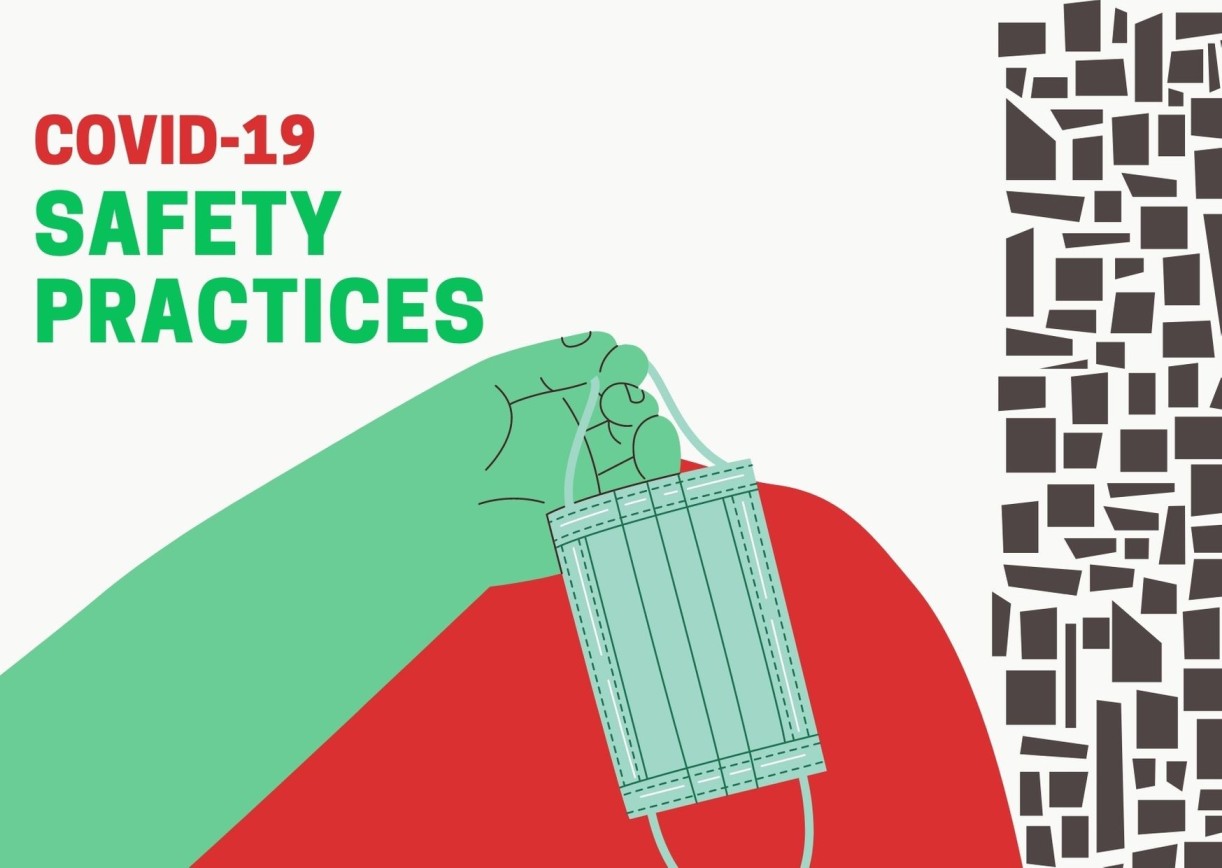
These 5 practices can help you stay protected from Covid-19
In these difficult and devastating times, we all want to keep ourselves protected from this deadly pandemic. The entire human race is praying to be safe and establish a Covid-free atmosphere in the world. But how can we make this happen? What measures can truly safeguard us from getting infected by this highly contagious disease?
1. MASK- A dependable shield
Wearing a proper mask should be our utmost priority whenever we move out of our houses or go to crowded places. Mask is the first wall of defence against the Coronavirus. The majority of the chances of getting infected are narrowed down if we wear appropriate masks suggested by our government and health authorities. But just wearing the masks is not sufficient; the mask should cover your face and nose properly. Only good quality masks should be used, cloth masks should be regularly washed, and use-and-throw masks should not be used more than twice. Masks should be handled only by using elastic strands. Avoid using masks that have filters installed on them, but use masks that are comfortable and easy to breathe. Remember, Mask ON....Life ON!
2. Maintain a safe distance today to have a safer tomorrow
Another crucial and effective preventive measure is maintaining a social distance of at least six feet when you are around other people. Avoiding close contact with people can nullify the chances of getting infected to larger extents. Even when you are at home, it is recommended to avoid getting close to the sick person or with low immunity, especially aged members of your house. Today this physical distance is a necessity to ensure the safety of you and also the people around you.
3. Safety is in your HANDS. Literally!
Our hands touch many things and surfaces daily, which means they are massively exposed to the virus. Later these hands can act as a carrier and can make our bodies vulnerable to the infection. So, we must wash our hands regularly and properly. Hands should be either washed by using soap and water or using hand sanitizers with a minimum of 70% alcohol. Especially when you are in a public place, carry a sanitizer with you always and use it whenever you touch an unknown surface. Avoid touching your nose, eyes, face, and mouth with unclean hands. Also, maintain personal hygiene and even keep your surroundings disinfected.
4. Vaccine is a must
Responsibly participate in the vaccination drive and get yourself vaccinated with both the doses of the vaccine. Also, encourage others to get themselves vaccinated. The vaccine is a game-changer during these challenging times, so be responsible and take the shot whenever available.
5. Your Health, Your Priority
In this depressing environment, it is wise to understand that staying positive can flush all the negativity and restore happiness. Every human is a superhero during these crucial times. Together we all can do wonders, follow these guidelines, and realize the importance of Covid appropriate behaviour and be a life saviour.
Lastly, in this extreme situation, closely monitor your health for any unexpected changes in your body. Never underestimate any symptoms, stay alert and consult your doctor in case you feel something odd. It is suggested to have an appropriate
health insurance
policy that acts as a rescuer for immediate cashless hospitalization and huge Covid related hospital expenses. You can buy Health Insurance Online in a contactless manner from a trusted source to ensure your health cover.
Let's make this difficult period a little lighter, both emotionally and mentally, and win this battle.
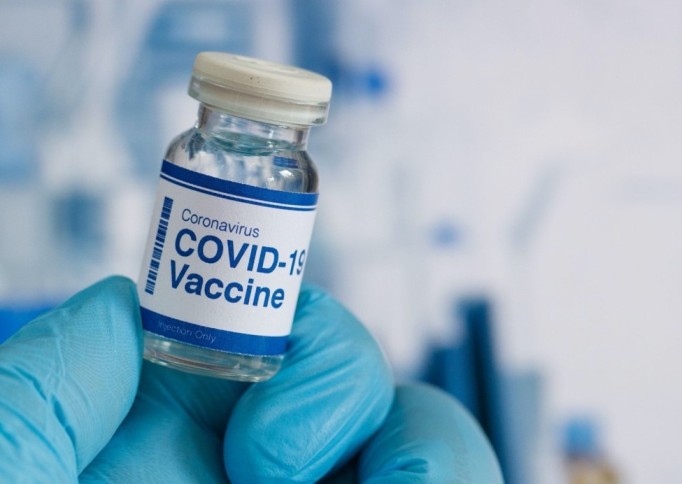
Getting the Covid vaccine? Here's what you need to know
Amidst this pandemic, the human race is praying desperately for the cure. After so many efforts, we are finally blessed to have a vaccine now. It is indeed significant that it could be made in such a short period; all credit to our advanced medical researchers.
Want to get the COVID-19 vaccine? Please check this step-wise procedure.
The first step to get vaccinated is to register yourself on the CoWin portal and get an appointment for the first dose of the vaccine. CoWin is a trusted platform designed by the government, which runs both independently and also on the Arogya Setu app. Avoid using any other portal or application for registering yourself as a lot of fraudulent portals are being run to fool people. Know exactly where the vaccine drives are rolling in your vicinity.
Also, it is important to know the difference between various doses, their side effects, and which one is suitable for you to take. Do this with the help of a physician or a doctor before taking your shot of vaccine.
Setting up your mind to get vaccinated without getting afraid is important. Vaccination is nothing but immunization!
What is to be done before getting vaccinated?
Register yourself on the government-suggested website and get an appointment for a particular day. As your day of vaccination is close, take adequate rest. Have enough sleep of 7-8 hours and avoid exhausting yourself. Also, if you are on some other medication or if you are on steroids or any immunosuppression, then consult your doctor.
For the safer side, if you feel any symptoms like cough, fever, cold, sore throat, etc. on or before the day of vaccination, then seek medical help. Consume a balanced diet to boost your immune system and to maintain your energy level. Stay hydrated, it is the key to stay calm inside out.
What to do when ‘it is the day’?
On the day of your shot, do a safety check. Ensure you are wearing a proper face mask and sanitize your hands properly. If possible, wear hand gloves too to maintain zero contact. Foremost, wear loose clothes when you are going to the vaccination centre because the vaccination spot is on the upper arm, giving easy access to the vaccinator.
The most important thing is to stay positive. Don't get anxious, take slow deep breaths. Think of a positive outcome – this shot is going to be a shield for you and others around you.
And, please carry your photo ID card mentioned in your appointment details for vaccination.
What are the steps taken after getting vaccinated?
The primary step is to monitor yourself. If there are any side effects, they will appear within 30 minutes after getting your vaccine shot. There are mild and common effects like swelling, redness on the arm, dizziness, headache, chills or mild fever, joint or muscle ache, etc. Remember that these side effects will subside within a few days.
If you feel severe symptoms like vomiting, fainting, allergic reactions, then seek medical help immediately. Avoid consuming painkillers or any other medication unless you consult a doctor about it.
The second dose is equally essential, so don't miss that. There should be a fair gap of 4-12 weeks between both the doses.
And most important of all is, even after getting vaccinated, don't stop taking precautions in day-to-day life. Continue wearing your masks, do sanitize properly and maintain social distancing.
Also, considering the risk pandemic brought, if you already don't have an existing health insurance, it is time to purchase a new
health insurance plan
.You can buy Health Insurance Online to get coverage to protect your family from sudden illnesses, hospitalization and medical expenses.
Let us be responsible, and let us all protect one another and help our community get through these pandemic hard times. Stay Safe, Get Vaccinated.

Tips for a homeowner facing a fire or smoke damage
Disasters have many faces and can strike anytime, anywhere; they can be seen in the form of quakes, floods, gas leaks, explosions, etc. and one of the most commonly known faces of disaster is fire. Damage felt after a partial or full-blown fire mishap is quite painful and nearly unrecoverable. However, if you have your house insured with ironclad insurance from a well-reputed fire insurance company, then your hassles can be reduced to a minimum.
A fire insurance policy plays an essential role in dealing with the losses and damages incurred due to fire. It is highly recommended to purchase fire insurance to safeguard your homes from any future calamity that a sudden fire or smoke can cause.
Here are some of the tips you can follow if you face damage from fire or smoke in your homes.
- Ask for an advance against your claim: - Right after the house has been gutted to fire, you might be forced to evacuate the house, considering the dangerous situation because of the smoke. In this case, you are eligible to get an advance from your insurance company so that you can buy your daily essentials. Inform your insurance company and ask it to issue a cheque and bring it to wherever you are staying. It will help you in this dire need and will be enough for your survival until your claim gets accepted.
- Checking for the extent of losses: - Once the fire tragedy is controlled, the first act of the homeowner is to calculate or check for the damage extent of personal belongings and property loss in the fire. Once the total loss is measured and counted, it will be easier for you to negotiate with officials handling the claim process.
- Having your receipts documented: - After facing a disastrous house fire, you may be forced to live in a temporary dwelling like a hotel or guesthouse close to your vicinity. It would be ideal to secure all the receipts, document all the costs and expenses carefully. Once you receive the claim for the house fire, you may also get a compensated amount you incurred on your living expenses.
- Check bank statements if you don’t have a receipt: - People tend to be careless when it comes to saving receipts for every new thing that they buy. While we might save receipts of the electronic items for warranty or claiming a refund, it’s not easy to keep those long bills every time you go for grocery shopping. However, your every online transaction would bring a huge relief; hence look for credit card statements and bank statements to prove the value of items.
- Back up your vocal claims with evidence: - After the fire tragedy, some items are destroyed or damaged to such an extent that for the insurer, it could be challenging to identify for assigning the claim. So, as a responsible party, you ought to click as many pictures and shoot videos as possible of the damaged, smoked rooms to show the physical evidence of the actual damage before it gets wiped by a restoration company.
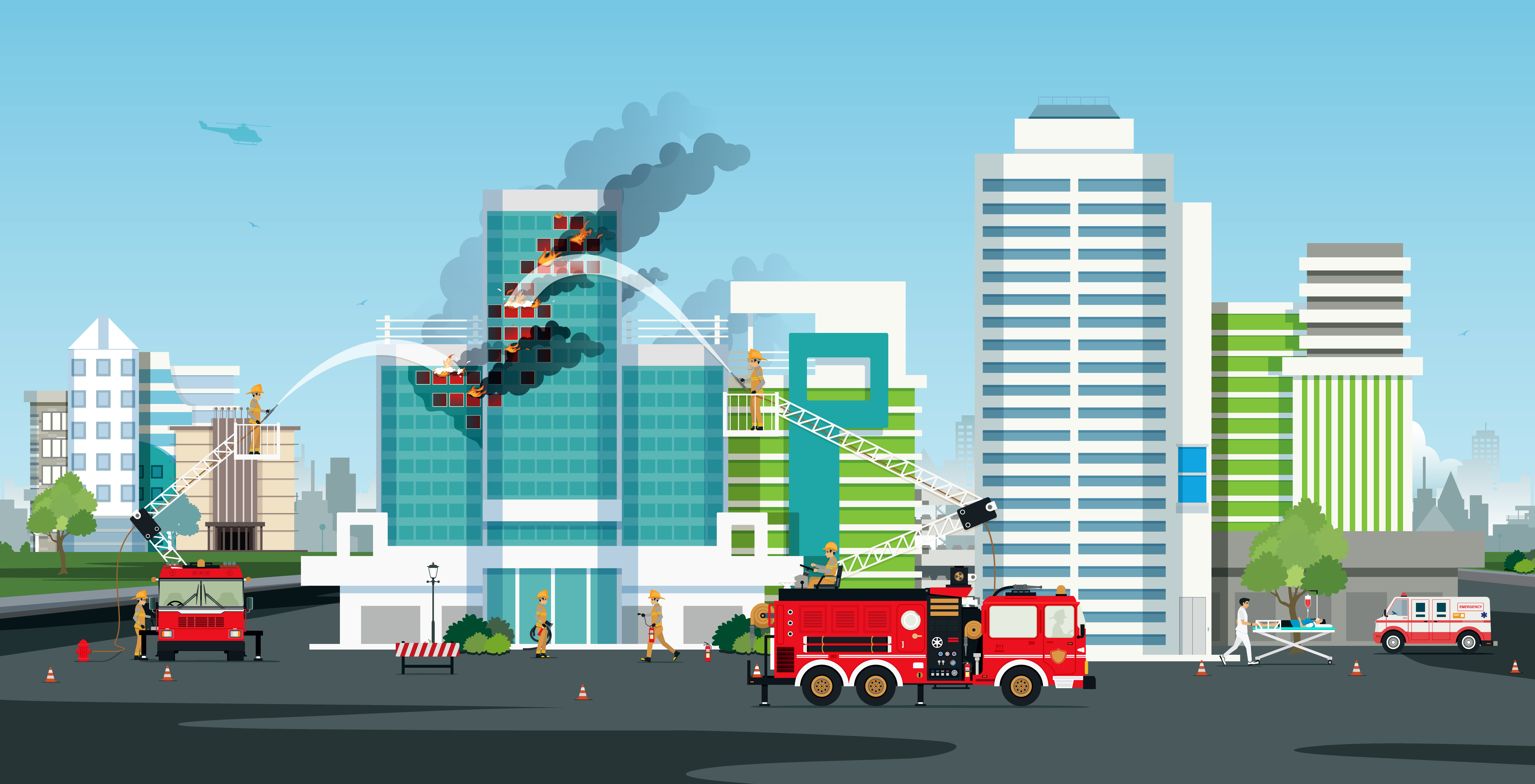
Quick Guide on Fire Insurance
Fire insurance is a contractual agreement between the policyholder and the insurer wherein the insurer in return for consideration or premium agrees to indemnify the policyholder or the insured person for the financial loss that he/she may suffer due to destruction of or damage to property or goods by fire during a specific period. You can buy as well as renew a fire insurance policy in India by online as well as offline ways.
The purchase of fire insurance helps to cover the cost of replacement, repair or reconstruction of the property, but fire insurance is generally not valid in case of war, nuclear risk or any such similar peril. Buying fire insurance is always a good idea because your property is your investment and buying a fire insurance policy will help you recover the damage and loss caused due to fire on your property.
Most of the policies offered by the different insurance providers cover the physical damage caused to your property by the following perils: -
- Fire
- Lightning
- Riot and Strike
- Earthquake, wind and storm
- Explosion
- Smoke damage
- Sprinkler Damage
- Damage due to aircraft
- Bush fire
- Subsidence, rockslides or landslides
- Impact damage which may occur due to the impact of road vehicles or animals or rails.
There are various types of fire insurance policies that are available in India, depending on the coverage requirement of the individual. The type of fire insurance policy in India you may choose also depends on whether the asset which is being insured is a fixed asset or a non-fixed asset. Depending on the type of asset being insured, insurance providers have different types of fire insurance policies available. The types of policies for fixed assets such as homes are: -
- Replacement Value Policy - The asset which has been insured is replaced if it is damaged by fire wherein the insurance company pays the replacement value of the damaged property.
- Reinstatement Value Policy - This is almost similar to the Replacement Value Policy but with an added clause that the insurance company will replace the damaged property to its original condition before the occurrence of the peril. This policy applies to fixed assets like buildings.
There are many different types of policies for non-fixed assets, such as: -
- Specific Policy - This policy covers the loss up to a specific amount which is less than the real value of the property.
- Comprehensive Policy - Also called ‘All in One’ policy, this policy covers loss due to fire, theft, burglary as well as other third-party damages.
- Valued Policy - Under this policy, the insured person can recover a fixed amount which was agreed to at the time the policy was bought.
- Floating Policy - This policy covers loss due to fire to property belonging to the same person but at different places.
- Valuable Policy - The sum insured is not decided at the time of buying the policy but instead, the claim amount is calculated at the time of loss.
- Consequential Loss Policy - This policy covers the loss in profit caused due to disruption of the business by damage due to fire.
Buying a fire insurance policy for your house or your goods is always a good decision, but you must buy a policy which covers the risk that you face and understand the nature of the asset that you want to insure and then buy an insurance policy accordingly.
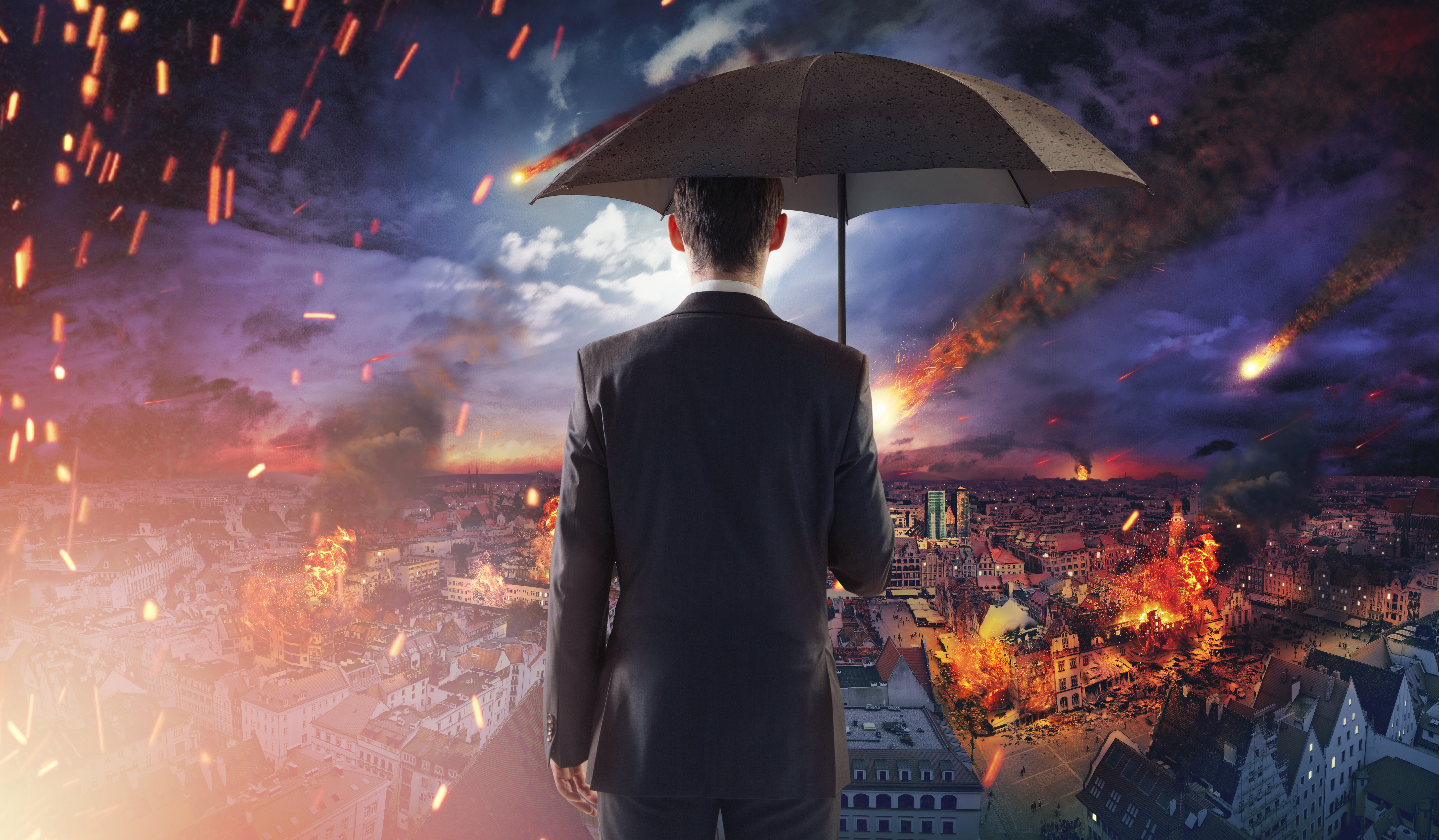
Quick Tips on Fire Insurance
Fire and related events can cause very big losses, and they have become one of the biggest causes of losses in recent times. The damage due to fire can include non-movable assets like homes and buildings as well as movable assets like goods. To ensure you are protected against any unforeseen damage of your property by fire or any fire-related event, you can buy fire insurance for your property from any of the fire insurance companies in India. Fire insurance involves many things and some things must be taken care of while buying fire insurance or renewing your insurance so that you need to pay a lesser premium as well as while filing claims so that you get the best deals.
Things covered under fire insurance: -
Fire, explosion and implosion Lightning Damage due to aircraft Strikes and riots Rockslides and landslides Impact damage Malicious damage Bush fire Smoke damage Storm, typhoon Sprinkler damage Earthquake
Things which fire insurance companies in India do not cover: -
Perils like war, civil war, invasion and similar events Rebellion or Martial law and similar events Underground fires and losses due to that Spontaneous Combustion Losses due to pollution or contamination Theft related losses occurring during or after the fire Consequential losses
What should be the policy amount of your fire insurance?
In most cases, the total sum for which you are buying the fire insurance should be equal to the total cost needed to rebuild or reinstate the property and the professional fees involved along with the charges for the removal of debris.
What is the difference between Replacement Value Policy and Reinstatement Value Policy for Fixed Assets?
In Replacement Value Policy, the insurance company pays the cost of replacing the complete asset that has been damaged or lost due to fire and related events whereas in case of a Reinstatement Value Policy; the insurance company pays the cost to replace the damaged property to its original condition it was in before the loss due to fire. While Replacement Value Policy can apply to other assets, the Reinstatement Value Policy is only applicable to buildings and no other assets.
When buying a fire insurance policy from fire insurance companies in India, you must consider the following things:
The type of risk that the policy covers and if the risk covered by the policy matches the risk you face for your property. The nature of the asset you want to insure because there are different types of policies available for fixed assets and many other different types of policies available for non-fixed assets. Understand the coverage duration of your policy and when to renew the policy.
What information you should get from the fire insurance company while buying the policy?
Premium Payable The insurance cancellation and refund policy Period of coverage Scope of policy coverage Non-standard exclusions Claims reporting procedures
What things are considered to calculate the premium?
The insurer uses many different kinds of data to come up with a final number which you need to pay as premium annually:
The type of policy The type of risk or risks covered The total sum insured The total value of the asset being insured How the asset being insured is used by the owner of the asset The expected risks that can damage the property being insured Whether the person has taken a policy extension or not
How to claim if your asset is damaged?
You need to immediately contact your insurer as soon as your insured property is damaged. The insurer may appoint an independent loss adjuster to take care of your claim, and you will be required to fill a form to start the claim process. The insurer will undertake proper investigation and will then accept the claim if everything is fine.

